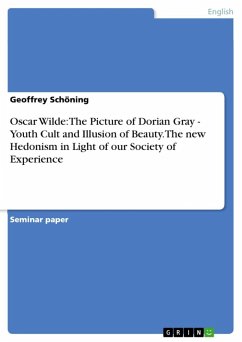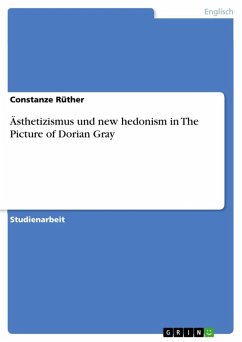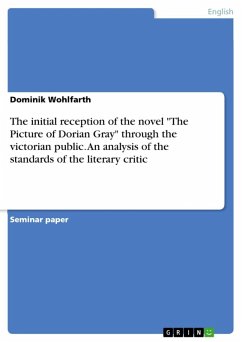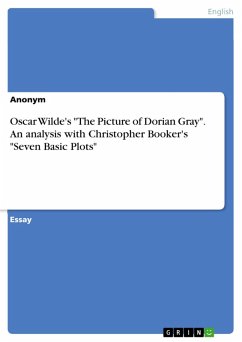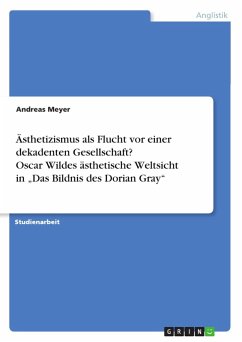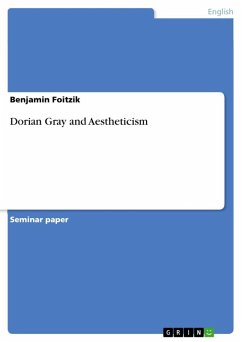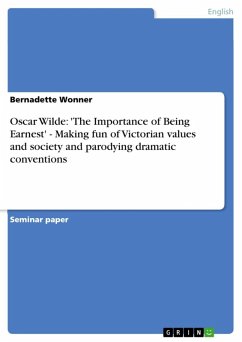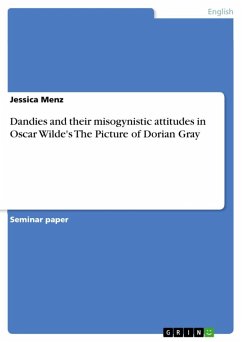Seminar paper from the year 2000 in the subject English Language and Literature Studies - Literature, grade: 2,0 (B), University of Freiburg (Institute for Anglistics), course: Introduction to English and American Literature Studies, language: English, abstract: Introduction "I speak the truth of tomorrow"i Lord Henry says on being asked to defend his "throne" as Prince Paradox. Although one of his usually witty answers in high society conversation, this indubitably self-confident statement leads to a general question: The "New Hedonism" as presented in Oscar Wilde's novel The Picture of Dorian Gray, does it anticipate developments and structures of our modern society? To find an adequate answer to the question is the task of this research paper. Starting with an analysis of the theory presented by Lord Henry Wotton, there follows an overall view of the philosophy's intellectual background. Afterwards, the look at Dorian's life under the influence of the hedonistic model shall give first impressions of its practical effects. These three chapters therefore deal with the "New Hedonism" directly related to the novel itself and to its author Oscar Wilde. The second part of the paper then centres around the present situation. After introductory clarifications to the term "Erlebnisgesellschaft" and to general social changes, it scrutinises modern society for parallels to the outstanding pillars of the hedonistic programme. These are on the one hand self-realisation and the motive to be always seeking sensations, and on the other hand the cult of youth and beauty mania. Eventually, the findings of that examination end up in a conclusion which shall also serve as an outlook. Concerning the research done in this special field, it astonishes that there was only one work to be found which explicitly dealt with the relation between the "New Hedonism" in The Picture of Dorian Gray and modern society, namely a chapter of Norbert Kohl's Oscar Wilde biography. Due to this circumstance, the literature consulted is clearly divided into two sectors: literary science and sociology. For the latter, it was the study "Die Erlebnis-gesellschaft" by Gerhard Schulze which was used as a main reference. Thus, syntactic fusion of German and English might be excused. [...]
Dieser Download kann aus rechtlichen Gründen nur mit Rechnungsadresse in A, B, BG, CY, CZ, D, DK, EW, E, FIN, F, GR, HR, H, IRL, I, LT, L, LR, M, NL, PL, P, R, S, SLO, SK ausgeliefert werden.

